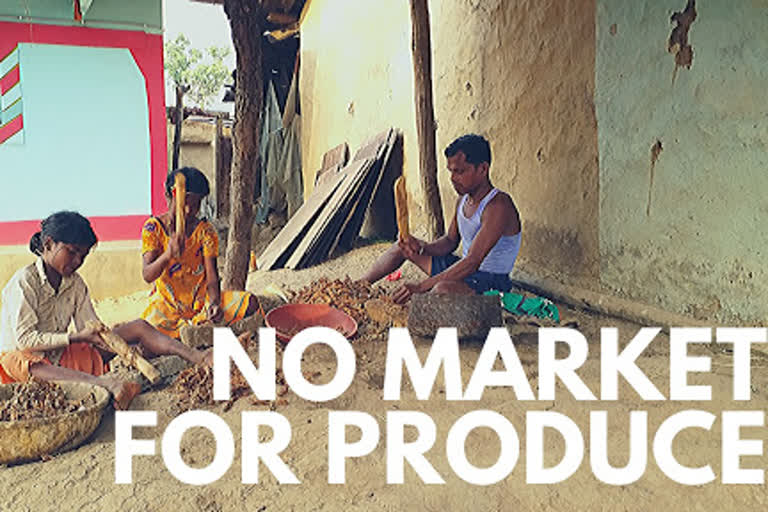Bastar (Chhattisgarh): With businesses shut and markets closed across the country in the wake of a nationwide lockdown imposed to combat coronavirus disease, tribal communities from Jagdalpur in Chhattisgarh’s Bastar district are somehow surviving on its meagre earnings from the sale of tamarind.
Usually a grand affair, the sale of tamarind in Jagdalpur - touted as the largest production centre of tamarind in Asia - brings a decent income to the tribals and forest dwellers in this area. But, due to the lockdown, there is no market available for this forest produce which has, in turn, led to a dip in its market price.
“This is the season to sell our tamarind produce. We are paid Rs. 50 for 10 kilos and Rs. 100 for 20 kilos. This is what the villagers are surviving on,” said Lokeshwar Nag, a tribal from Jagdalpur.
Also read: How are Pune's old age homes fighting Covid?
Narrating a similar ordeal, Mandukram, said, “We are getting Rs. 120 for 20 kilos and Rs. 240 for 40 kilos of tamarind.”
The tribal residents of Jagdalpur are primarily dependent on the sale of decorticated tamarind which usually earns them up to Rs 125 per kg at Haat bazaars.
They collect ripe tamarind pods from the trees in the nearby areas, and manually remove the shell, the fibre and then decorticate the pod to remove the seeds.
The entire process, which requires manual labour, takes at least two days to complete.



